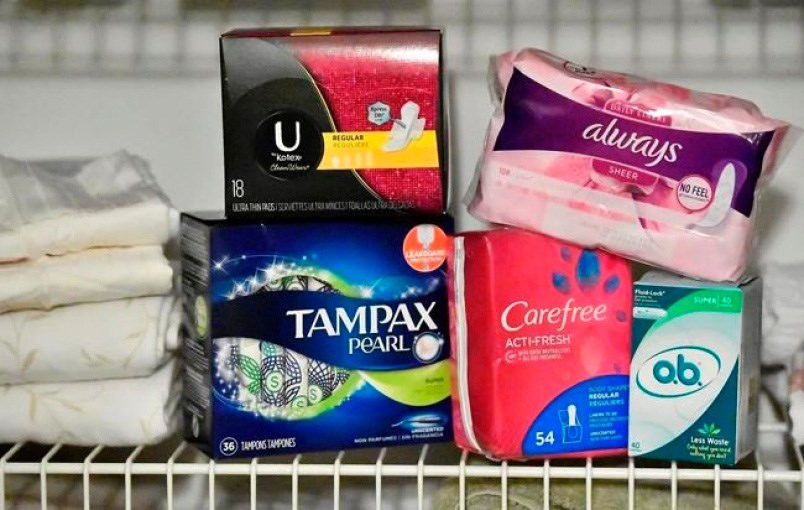The City of New Westminster will be providing free menstrual products at various places around town as part of its Period Promise.
In an attempt to reduce menstrual stigma, city council has directed staff to implement a pilot program providing free menstrual products in civic facilities, including recreational spaces and libraries. It will also provide a pilot program to help homeless, low-income and vulnerable girls, women, trans individuals and non-binary people.
The pilot program is in response to the United Way’s Period Promise campaign, which aims to increase access to menstruation products to vulnerable populations and address period poverty.
According to a staff report, the cost to operate a six-month pilot project is $15,200. Products will initially be offered at Centennial Community Centre, the library, Quayside Park, Queensborough Community Centre and the youth centre, as well as at the Elizabeth Fry Society, the New Westminster Food Bank and the Union Gospel Mission.
“The cost to provide menstrual products at civic facilities, and through non-profit partners, for a one-year period is anticipated to be $38,400,” said the report. “The annual cost beyond the pilot is anticipated to be $28,000. In year one, there is a one-time fee for dispenser purchase.”
According to a staff report, almost one-quarter of Canadian women say they are struggling to afford menstrual products for themselves and/or their children. More than 66 per cent say their periods have prevented them from participating fully in day-to-day activities of life.
The report stated the city’s current practice is to stock all civic washroom facilities with free toilet paper and paper towels, so it would be an extension of this standard practice is to stock menstrual products in civic facilities.
Coun. Nadine Nakagawa said some municipalities are providing free menstruation products in civic facilities, but not to nonprofits. She supports pilot program because there’s a need for the products, but doesn’t want them to be made available at nonprofits instead of at public facilities.
“I do think that there are lots of folks who wouldn’t access these that would be in public facilities,” she said. “I do think it is about normalizing products and making them available in the same way that other products, like hand towels and whatnot, are available to people in washrooms.”
John Stark, the city’ supervisor of community planning, said it’s an issue that arose out of discussions with local service providers.
“In regards to this particular aspect of this pilot, why it was being proposed was the individuals would get the product in advance, they would get the product that meets their needs and not the product that’s available. It would allow them, having the product in advance, to use both private and public bathrooms. Also it would allay any concerns that the product may be out of stock or the dispenser may not be working,” he said. “It does put the product in the hands of those individuals.”
When he worked at the food bank, Coun. Jaimie McEvoy said menstrual products and pet food were the two most-requested products.
A staff report states New Westminster was the first school district it the province to install coin-free menstrual products in their schools and has reported no negative impacts associated with the program. In September, city council directed staff to report back about the cost and implementation of providing products at city facilities, including recreation spaces and libraries.
Mayor Jonathan Cote said the city’s intent was to follow the school district’s lead and determine how it could make these products available in civic facilities.
“I almost want them to be evaluated as separate pilot projects, not the same thing,” he said. “They actually are very different services, different ways of engaging in this issue.”



